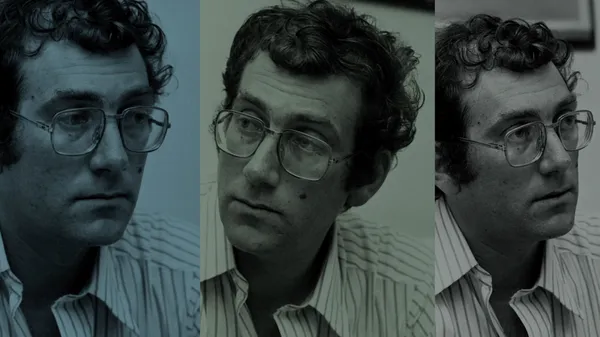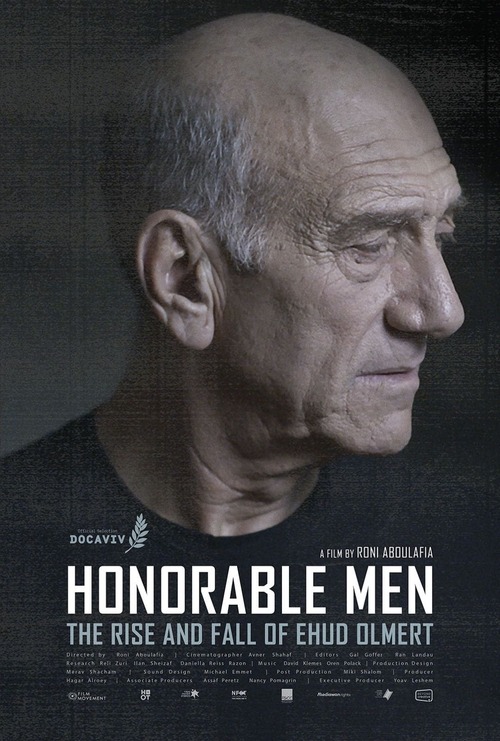Eye For Film >> Movies >> Honorable Men (2020) Film Review
Honorable Men
Reviewed by: Jennie Kermode

At the time of writing this review, Scotland’s political scene is in uproar due to corruption allegations levelled at a former party CEO. In England, the last Prime Minister but one has faced accusations of misconduct in public office, though an investigation subsequently concluded that there was no criminal case to answer. With a former US President currently facing corruption charges, it’s safe to say that trust in politicians is pretty low. “Hold my beer,” says Israel, which has the distinction of having sent a former Prime Minister to jail.
That Prime Minister was Ehud Olmert, who served his country from 2006 to 2009 and his sentence from 2016 to 2018, after years of legal challenges. During that time he persistently maintained his innocence and wrote an autobiography, Searching For Peace: A Memoir Of Israel, in which he sought to clear his name. It’s the sort of book which serves as a reminder of why writers should listen to their editors, argued with such petulance and in such an elaborate fashion that it immediately inspires suspicion. Give Olmert enough rope and he will hang himself, though it may be for something he didn’t do.

Is Olmert innocent? Was he the victim of a conspiracy? Since his imprisonment he has shied away from a largely unsympathetic press. A friend of his daughter Michal, documentarian Roni Aboulafia was able to gain his trust, and in this film she strives to put his case whilst acknowledging the differing views of prosecutors, political opponents and some of those who worked alongside him. The question which lies at the heart of the film is how successfully she has been able to do this without being manipulated by the former lawyer, who was always known for his ability to talk people into doing what he wanted.
That is, to be fair, a necessary skill in politics. It’s a sector in which a lot of people work very hard either as volunteers or for salaries which don’t take full account of their efforts, so it’s not surprising that whispers of betrayal lead to tempers running high. There is a lot to consider in the Olmert case and this documentary isn’t so hot on the details, sometimes bypassing big events almost entirely for the sake of maintaining its thriller-like narrative. Where it does well is in exploring the human relationships behind the headlines, which ultimately proved critical in contributing to a conviction.
Most prominent amongst these is that between Olmert and his aide, Shula Zaken, who, during the course of events after the first accusations emerged, went from being intensely loyal to testifying against him. Speaking here, both parties clearly feel betrayed, and a fundamental difference in how they understood their relationship seems to be at the base of it, Zaken expecting a level of personal connection which is difficult for anyone dealing with the pressures of a senior political role to maintain, Olmert frustrated by what he perceived as a secretary forgetting her place. Less generous interpretations might be made in either case, and Aboulafia leaves viewers room to make up their own minds, but the complexity of the relationship emerges through intriguing little details and highlights the importance of remembering that political players are human beings.
The director’s efforts to explore the alleged conspiracy are less successful, though it has to be acknowledged that condensing all of Olmert’s claims into a two hour documentary was always going to present difficulties. Olmert himself comes across as heavily invested in notions of his own victimhood, though of course, that doesn’t mean that it’s not real. Anyone with any political experience will know that conspiracies are commonplace, though they’re frequently disorganised and few really amount to anything. The tricky part here is substantiating why the alleged conspiracists would invest as much energy in trying to destroy Olmert as he claims they did.
Aboulafia centres her argument on the idea that Olmert was an unusually radical left wing politician bent on brokering a peace settlement with Palestine on terms which horrified the right. She finds some right wing voices to attest to this, but if one steps back and examines Olmert’s career, it’s less convincing. He emerges as more of a centrist whose politics changed over the years, often in accordance with the mood of the wider public. Why oust such a man when one might simply endeavour to lead him in a different direction? There’s a narcissistic edge to his representation of himself as a doomed hero, and Aboulafia’s approach sometimes suggests that she’s looking for hope rather than contending with the discomfort of realpolitik.
He may now have said goodbye to Maasiyahu Prison, but since this film was originally released on its home turf, Olmert has received another conviction, this time for defaming current Prime Minister Benjamin Netanyahu. Perhaps he is a target for the right. Perhaps he simply has a habit of putting himself in the firing line. For all its spinning of theories, Honorable Men doesn’t really bring us any closer to the truth. What it does achieve is to remind us that in today’s world, politics is becoming ever more vicious, and it takes a certain strength of character to survive that. Character is not something which Olmert lacks.
Reviewed on: 11 Apr 2023
















